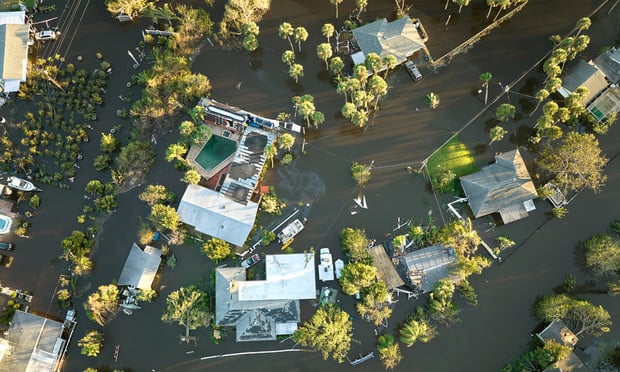Every claims representative likely considers the insurer's general duty of good faith and fair dealing when they receive notice of a new claim, or at least they should. But what is “fair” when it comes to handling property and casualty claims? Unfortunately, the answer could be different in each of the 50 states. On one hand, each state has provided a starting point for that consideration by issuing either a statutory or regulatory legal standard advancing required and unfair actions or practices in handling and settling property and casualty claims.
Most states utilize some version or portion of the National Association of Insurance Commissioners (“NAIC”) Model Unfair Claims Settlement Practices Act or Model Unfair Property/Casualty Settlement Practices Regulations. However, each state has its own modification or specialization of those model legal authorities, or has enacted its own unique laws in order to accomplish the same goal or purpose.
Generally, the purpose of these laws is to set forth minimum standards for the investigation and disposition of property and casualty claims under insurance contracts (utilizing the purpose set out by NAIC in the model statutes and regulations). These minimum standards are all basically protections for each individual presenting a claim to an insurer, whether an insured or third-party claimant.
Practically speaking, the unfair settlement practices legal schemes enacted by each state define certain required actions as well as prohibited conduct which constitutes “unfair” claims practices that must be avoided.
With that in mind, none of the states' legal authorities concerning unfair claims settlement practices are identical, but the states' legal standards operate under certain common themes of required and unfair practices:
-
File and record documentation;
-
Required claim communications;
-
Disclosure and representation of coverage provisions;
-
Standards for prompt investigations; and
-
Standards for prompt, fair and equitable settlements.
While it would be impossible to detail each state's requirements regarding unfair claims handling and settlement practices in a succinct manner, here is a collection of several “do's” and “don'ts” to keep in mind when handling and settling property and casualty insurance claims.
Do
1) Disclose all pertinent benefits, coverages and other provisions of the insurance contract under which claim is presented.
In general, this requirement extends only to first-party insureds. However, this disclosure requirement leaves several questions including: who determines what is “pertinent” and what needs to be done when there are multiple policies under which a claim may be presented?
2) Timely respond to all communications.
Generally, each jurisdiction establishes requirements for an insurer's first action on a claim, often triggered by the initial receipt of a claim. While there is no uniform time limit for acknowledging a claim throughout all of the states, it is generally a short period of time. The time frames required under different states' laws include, but are not limited to: “within 10 working days after receipt of a claim,” “within 20 working days after receipt of a claim,” “with reasonable promptness,” or “promptly.” Nevertheless, many states require responses or acknowledgement of any pertinent communication from an insured or claimant under the prescribed time frames.
Additionally, many states specifically require prompt investigation of a claim, frequent notification of continued investigation concerning a claim, and timeframes for making payment pursuant to any settlement or claim approval. Thus, it is always important to act or communicate without delay.
3) Provide reasonable explanation from the language in the insurance policy of the basis for the denial of a claim, or for an offer in a compromise settlement.
When denying a claim it is important to advise the insured or claimant of the specific policy provisions affecting this decision. The same is true for a settlement offer. In essence, the states are seeking to protect the insured or claimant and fully inform them of the insurer's position to allow them to determine whether they need to take any additional action.
Do not
1) Deny a claim based on failure of the claimant to make the vehicle or property available for inspection unless there is documentation of a breach of the policy provisions in the claim file.
Again, to avoid violations of many of the specific unfair claim practices, it is important to document the file, including any and all communication with the insureds or claimants, any refusal on their part to comply with policy provisions or requests, and any investigatory actions taken.
2) Knowingly cease or prolong negotiations for settlement of a claim with the intention of allowing the statute of limitations to run out.
Again, prompt investigation and action should be the rule. Generally, it is important to provide the insured or claimant with notice of an approaching statute of limitations date (usually in writing), which many states require. However, some states do not require any such notice when the insured or claimant is represented by counsel.
3) Indicate payment or accompanying letter with payment is final or requires the release of any claims, unless the policy limit has been paid or the first-party claimant and insurer have agreed to a compromise settlement in the amount payable under the insurance contract.
4) Issue checks or drafts in partial settlement of a loss or claim under a specific coverage that contains language purporting to release insurer or insureds from total liability under all coverage.
These kinds of prohibited actions are not limited to first-party insureds, but also extend to third-party claimants.
5) Withhold payment under any applicable coverage when the payment is known, not in dispute, and would extinguish the insurer's liability under that coverage if a claim involves multiple coverages.
By enacting unfair claims settlement practices laws, the states are seeking to effectuate prompt and fair settlements and placing the burden on the insurers to recover under any other applicable insurance policies. If coverage is applicable to a claim, the states expect the insurer to pay the claim and then fight with any additional applicable insurance. The same is true if there are multiple coverages available to the insured from the same insurer; the insurer cannot withhold payment of an undisputed portion to try to obtain a compromise under other coverages.
6) Delay settlement where liability has become reasonably clear under a portion of the policy coverage in order to influence settlement under other portions of the insurance policy coverage.
While these lists are not exhaustive of all of the required or prohibited acts or practices under each state's unfair claims practices laws, they highlight the underlying purpose of these statutes and regulations. The states are attempting to effectuate prompt, fair, and equitable settlements of claims where liability is reasonably clear, requiring prompt communications and claim documentation, while keeping insureds and claimants informed when additional investigation is required or a claim is denied. In fact, these unfair claims practices can be treated almost as “consumer” protection laws for an insured or claimant.
When choosing a particular course of action, it may be wise to check with the state's unfair claims settlement practices statutes or regulations for additional guidance.
What are the consequences of a violation of a state's unfair claims settlement practices? Typically, each state's Department of Insurance (i.e., insurance commissioner) is authorized to conduct investigations into an insurer's claims practices and levy penalties for proven violations. Many states require a pattern of violations (i.e., established practices) before any penalties will be imposed by the Department of Insurance, and a few states only require a single violation to support the imposition of penalties.
Under the Model Act and Regulations, NAIC states that nothing in those provisions shall create or imply a private cause of action or individual civil lawsuit for violation of those laws. However, not all states have followed that suggestion. Some states permit private causes of action and civil suits against insurers for a violation of their unfair claims practices laws. Of those states, many require claimants to pursue administrative remedies first.
Some states, like Florida, have even statutorily created a private right of action which permits both insureds and third-parties to bring private causes of action under Florida's Unfair Claims Practices Act. Several other states permit a private right of action to proceed in court even though their statutory schemes do not specifically provide for such a remedy, implying the cause of action based on the failure of the legislature to specifically exclude it.
Because each state has unique requirements and prohibited activities, it is important to focus on the specific state's unfair claims settlement practices laws. Remembering the general purposes for which the unfair claims practices laws have been enacted and keeping the above suggestions in mind will assist insurers in handling property and casualty claims in a “fair” manner.
Want to continue reading?
Become a Free PropertyCasualty360 Digital Reader
Your access to unlimited PropertyCasualty360 content isn’t changing.
Once you are an ALM digital member, you’ll receive:
- Breaking insurance news and analysis, on-site and via our newsletters and custom alerts
- Weekly Insurance Speak podcast featuring exclusive interviews with industry leaders
- Educational webcasts, white papers, and ebooks from industry thought leaders
- Critical converage of the employee benefits and financial advisory markets on our other ALM sites, BenefitsPRO and ThinkAdvisor
Already have an account? Sign In Now
© 2024 ALM Global, LLC, All Rights Reserved. Request academic re-use from www.copyright.com. All other uses, submit a request to [email protected]. For more information visit Asset & Logo Licensing.








